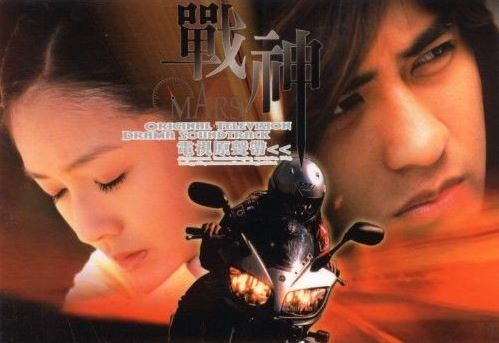How to say it when you are in the Philippines
Never use the term "Kung Hei Fat Choi"
When you are in the Philippines, according to ABS-CBN news reported by Willard Cheng, the most appropriate greeting to utter to the Chinese community is "Kiong Hee Huat Tsai". It is a Hokkien greeting which means "congratulations and wishing you prosperity". Hokkien is one of the local dialects spoken in China.
When you are in the Philippines, according to ABS-CBN news reported by Willard Cheng, the most appropriate greeting to utter to the Chinese community is "Kiong Hee Huat Tsai". It is a Hokkien greeting which means "congratulations and wishing you prosperity". Hokkien is one of the local dialects spoken in China.
Why "Kiong Hee Huat Tsai" is more appropriate to utter than "Kung Hei Fat Choi"?It's because most Chinese-Filipinos came from the Fujian province of China who spoke Hokkien. Great Taipans, Lucio Tan, Henry Sy, John Gokongwei, are just some of the Chinese immigrants who spoke Hokkien.
"Kung Hei Fat Choi" is a Cantonese term. Cantonese is a Chinese local dialect widely spoken in Hongkong, Macau and Guangdong, China.
"Kung Hei Fat Choi" is a Cantonese term. Cantonese is a Chinese local dialect widely spoken in Hongkong, Macau and Guangdong, China.
It was believed that Cantonese from Hongkong displayed the greetings "Kung Hei Fat Choi" on their restaurants' windows which the media and people outside China mistakenly took as the exact Chinese New Year greeting spoken in all Chinese dialects. But only Cantonese used this term. Hokkien people have their own version of the greetings. The Hokkien version must be the right term Filipinos should be using because the Chinese leaving in the Philippines are mostly Hokkien-speaking people, well, not unless you are greeting the residents of Hongkong, Macau and Guangdong.
Apparently, the greetings has another version in Mandarin, the official language of China, this time the line is pronounced as "Kong Xi Fa Tsai".
It is always important to take note how words, lines and phrases are used especially in a country with multiple dialects. In the Philippines for instance, the line "Maayong Buntag" might sound incomprehensible to the Tagalog-speaking Filipinos and the Ilocano term "Ay-ayatenka" (meaning I Love you) might appear very offensive to Visayan-speaking folks. The bottom line is, according to the report---used the appropriate term for a specific community.
It is always important to take note how words, lines and phrases are used especially in a country with multiple dialects. In the Philippines for instance, the line "Maayong Buntag" might sound incomprehensible to the Tagalog-speaking Filipinos and the Ilocano term "Ay-ayatenka" (meaning I Love you) might appear very offensive to Visayan-speaking folks. The bottom line is, according to the report---used the appropriate term for a specific community.
Now, we know the difference, so let's start banishing the "Kung Hei Fat Choi" and utter this genuine happy new year greeting for the Chinese-Filipino community, "Kiong Hee Huat Tsai".
You might argue that the term we habitually used every Chinese New Year has no difference with its real translation, but remember, even in the Philippines we are using appropriate terms based on our dialect.
You might argue that the term we habitually used every Chinese New Year has no difference with its real translation, but remember, even in the Philippines we are using appropriate terms based on our dialect.
The Tradition
Chinese calendar is different from Gregorian calendar (the one followed by Christians) so Chinese new year falls tomorrow, January 23 which is also known as Spring Festival. The celebration is based on the lunar calendar. The date varies each year because of the changes in the track of the new moon. Spring Festival traditionally ends two weeks and the festivities will be followed by Lantern Festival also known as Shangyuan Festival and highlighted by a dragon dance.
This year, 2012, according to the Chinese calendar, is the year of the water dragon. In Chinese astrology, elements (water, fire, wood, metal and earth) will have its two successive years cycle in one animal while animal symbols will take its turn once every 12 years. Each animal sign has personality traits and destiny.
According to Chinese tradition, the house should be thoroughly cleaned before the arrival of Spring Festival to sweep away bad luck and misfortune in the past year. Doors and windows should be given a new coat of paint and paper cut outs with words like "happiness", "wealth" and "longevity" will be used as decorations around the house.
Foods traditionally served during Chinese new year and its meaning:
- Sticky rice cake (commonly known as Tikoy in the Philippines: strong family bonds and sweet life)
- Dumplings (good wish greeting to a family)
- Fish with its head and tail intact (abundance)
- Kumquats (good fortune)
- Mandarin oranges (good will and good fortune)
- Vegetarian dish with a special seeweed (prosperity)
- Steamed cake (rising fortune)
- Spring rolls (wealth)
- Noodles without cutting the length (abundance, long life)
- Lobsters (abundance, wealth)
- Chicken served in whole (wealth and prosperity)
To our Chinese-Filipino friends: Kiong Hee Huat Tsai!










0 Comments